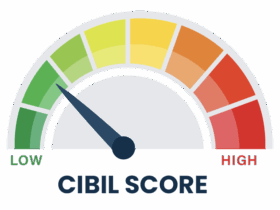A current account is a type of bank account that is designed for businesses and companies that require frequent transactions. In this article, we will discuss the meaning, features, benefits, types, and steps to open a current account.
Meaning of Current Account
A current account is a type of bank account that is used for frequent transactions by businesses, companies, and entrepreneurs.
It is also known as a transactional account, which enables an individual or a business entity to deposit and withdraw money from the account.
The primary purpose of a current account is to facilitate the smooth flow of funds for business purposes.
Features of Current Account
A current account is suitable for businesses that require frequent transactions such as cash deposits, withdrawals, and cheque transactions.
It does not offer interest on the balance maintained in the account.
It provides a facility of overdraft, which means that the account holder can withdraw more money than the available balance in the account.
The bank charges fees for various services offered under the current account such as chequebook, ATM card, transaction fees, etc.
The account holder can make multiple transactions in a day without any limit.
Benefits of Current Account:
A current account provides a hassle-free way of managing business transactions.
It enables businesses to make transactions without any restrictions on the number of transactions per day.
It provides a facility of overdraft, which can be utilized by businesses to manage their cash flow efficiently.
It offers various banking services such as online banking, mobile banking, and phone banking to facilitate convenient banking.
It provides a detailed statement of account transactions, which helps businesses in managing their finances effectively.
Types of Current Account
- Regular Current Account
This type of account is suitable for small businesses and individuals who require frequent transactions.
- Premium Current Account
This type of account is designed for high net worth individuals and large businesses. It offers various benefits such as higher transaction limits, personalized services, and other value-added services.
- Foreign Currency Current Account
This type of account is used for transactions in foreign currencies. It enables businesses to make international transactions without any hassle.
Steps to Open a Current Account
- Choose a bank
The first step is to select a bank that offers current account services.
- Provide KYC documents
The next step is to provide KYC (Know Your Customer) documents such as identity proof, address proof, and PAN card.
- Fill up the application form
Fill up the application form for opening a current account. The form will require details such as the nature of the business, the type of current account, and the expected volume of transactions.
- Submit the application form
Submit the application form along with the KYC documents to the bank.
- Initial deposit
Deposit the initial amount as specified by the bank to activate the current account.
- Signature verification
The bank may require signature verification for the authorized signatories of the account.
- Collect the chequebook and other documents
Once the account is activated, the bank will provide a chequebook, ATM card, and other relevant documents.
Steps to Choose the Right Current Account for Your Business
- Identify Your Business Needs
Determine your business needs and choose a current account that offers services that match your requirements.
- Compare Different Banks
Compare the services offered by different banks and choose the one that offers the best value for your money.
- Check Fees and Charges
Check the fees and charges associated with the current account and choose the one that offers reasonable rates.
- Research Online Banking Services
Check the online banking services offered by the bank and choose the one that offers easy and convenient banking services.
- Read the Terms and Conditions
Read the terms and conditions of the current account carefully to understand the bank’s policies on overdrafts, transaction fees, and other charges.
In conclusion, a current account is a useful banking service for businesses and individuals who require frequent transactions. It offers various benefits such as overdraft facility, unlimited transactions, and detailed statement of transactions. The account holder needs to choose a suitable type of current account based on their business requirements. The process of opening a current account is simple, and it requires KYC documents, application form, and initial deposit.








